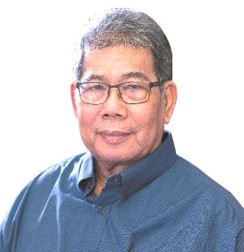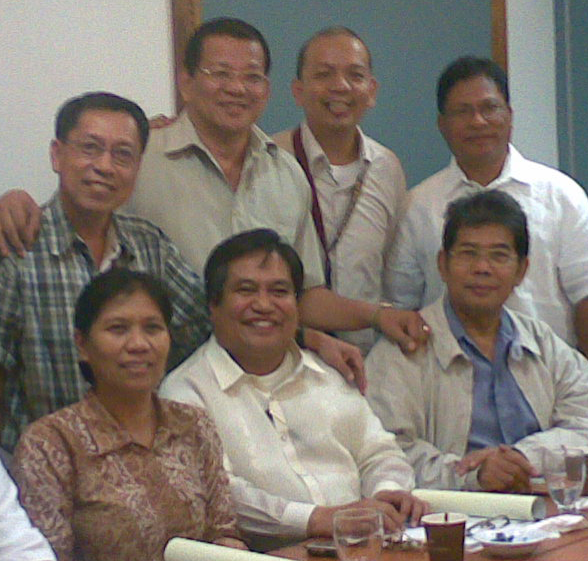Kasanyangan Microfinance Foundation, Inc. (062) 992-2306
MCLL Highway, Guiwan Zamboanga City
Zamboanga Del Sur, Philippines
+6395 3668 9602 +6396 0276 3311
Client Support
Monday - Friday: 8:00AM - 5:00M
Office Hours
Zamboanga Del Sur, Philippines
Client Support
Office Hours
The vicious cycle linking poverty can be broken by ensuring that the rural poor have access to land, water, credit, information, technology and markets and direct participation in decision making process.

KMFI was a spin-off from the microfinance program started under the auspices of Kasanyangan Foundation, Inc. (KFI). KFI was an NGO established in 1998 as a service project for Agrarian Reform Beneficiaries (ARBs) who were former union members of the National Federation of Labor (NFL). With the goal of uplifting the lives of the poor, KFI decided to implement its own microfinance program after learning about the successful implementation of the Center for Agrarian Reform and Development (CARD) in Laguna.
Impressed by the success of CARD in replicating the Grameen Bank Approach, KFI started its own Grameen Bank replication program in 2001 with an initial loan fund of Php 500,000. The program started its operation on October of the same year with two hundred twenty-five (225) members in the West Coast Area of Zamboanga City.
After a successful pilot project, KFI sought for an accreditation with the People’s Credit and Finance Corporation in 2002 and was given a credit line of Php 5.5 million. To finance the growing demand for credit, PCFC further increased KFI’s credit line to Php 11.5 million.
“KASANYANGAN, a word in Tausug and Yakan meaning prosperity or harmony, is chosen to stress our commitment to the aspirations of marginal and indigenous peoples of Mindanao.”
It was in 2004 that KFI Board decided to spin-off its microfinance program to create a separate entity, which paved the way for the creation of the Kasanyangan Center for Community Development Foundation Inc. (KCCDFI). KCCDFI was registered with the Securities and Exchange Commission on December 1, 2005 with total resources amounting to Php 53.37 million.
After more than three (3) years of operation using the modified Grameen Bank Approach, KCCDFI shifted from a Grameen Bank Approach to a modified ASA Lending Methodology. The decision to shift was made to prevent members from resigning due to the “tapal’’ system or group liability, wherein the loans of delinquent members are paid for by other members of the group. This had discouraged other members from continuing with the program since it was viewed as a burden for other group members. Another reason for the shift of methodology was because of the plans of KCCDFI for expansion. The simple and standardized ASA approach was seen as an efficient way to expand microfinance operations. KCCDFI then partnered with CARD to assist the organization in converting from a Grameen Bank Approach to ASA Methodology.
KCCDFI pursued an aggressive expansion covering the entire City of Zamboanga and stretching out all the way to Basilan, Sulu, Tawi-Tawi, Zamboanga Sibugay, Zamboanga del Sur, Zamboanga del Norte and the Cities of Iligan, Cagayan de Oro and Cebu with 32 branches serving over 30,000 borrowers. Additional loans were taken from PFCF, the National Livelihood and Development Corporation (NLDC), Social Enterprise Development Partnerships Inc. (SEDPI), CARD Inc., Foundation for Sustainable Society Inc. (FSSI), United Coconut Planters Bank – Coconut Industry Investment Fund Group (UCPB-CIIF) and from the KFI Mutual Benefit Association (KMBA).

KCCDFI expansion plans were moving smoothly, until a sudden turn of events forced the organization to trim down its operations in 2015. Zamboanga fell into a serious crisis in September 2013 when rouge elements of the Moro National Liberation Front (MNLF) under Nur Misuari tried to take control of the City, burning over 6,000 houses and closing down businesses in a siege that lasted for a month. Economic activity within the Zamboanga City came to a halt until the siege was finally declared over on September 28, 2013. The Zamboanga Siege had displaced over 23,000 families and had severely affected economic activity in the Region. This had caused many of KCCDFI borrowers to go delinquent on their loans. This prompted KCCDFI to scale down its operations and close down 14 of its branches in 2015 as past due loans were increasing and security threats forced operations in Basilan, Sulu and Tawi-Tawi to stop. KCCDFI liquidity was severely affected and PCFC and NLDC were forced to suspend its credit facilities to give way for KCCDFI’s rehabilitation.
The crisis brought about an opportunity to KCCDFI to re-group, to refresh and to face the challenges of assets contraction, payments and restructuring of existing obligations, client retention and new approaches in client selection.
KCCDFI’s name was also amended in pursuant of the provisons of Republic Act No. 10693 or the NGO Microfinance Act of 2016. Today we are now known as Kasanyangan Center for Community Development and Microfinance Foundation, Inc. (KCCDMFI).
In late 2016, KCCDMFI is set to pursue anew its purpose of serving the poor and alleviating communities from poverty.